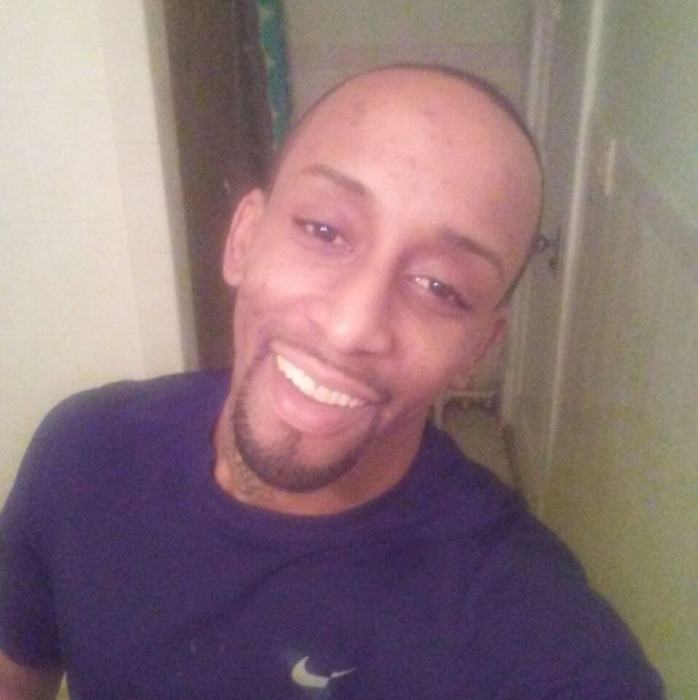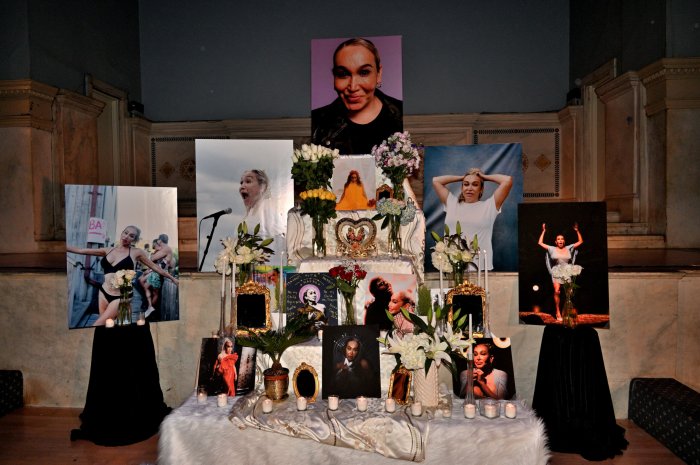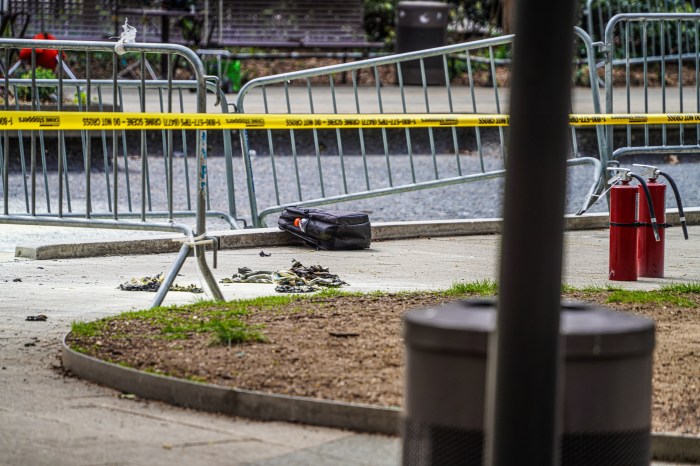The judge in the Carlos Castro murder case ruled that a friend of the slain Portuguese TV personality could testify that the victim intended to break up with defendant Renato Seabra.
The Manhattan district attorney got a boost in its case against Renato Seabra, the accused killer of Carlos Castro, after the judge in the case partially reversed himself and ruled that a primary prosecution witness could tell jurors that Castro told her he was going to end his relationship with Seabra.
“It was evident to both of them as of January 6 that this relationship was deteriorating,” Judge Daniel P. FitzGerald said in Supreme Court on October 10. “The people will be free to argue why the lovers’ quarrel on January 7 culminated in violence.”
The prosecution theory is that the 23-year-old was using the 65-year-old Portuguese TV personality for money and to advance his modeling career. The younger man flew into a rage in a Midtown hotel in 2011 and killed Castro after Castro told him the relationship was over and they were returning to Portugal early from a vacation, prosecutors allege.
On September 24, FitzGerald excluded several statements about the relationship ending that were to be introduced in testimony from Wanda Pires, a friend of Castro’s for more than 20 years, because they were uncorroborated hearsay.
Between then and October 10, prosecutors gathered evidence that Castro had moved up their return flight to Portugal from January 15 to January 9 and that the new airline tickets had been delivered to the hotel room the men shared. Castro also booked a car service to take them to the airport on January 9. Seabra knew the flight had been changed.
“Renato actually admits to a doctor… that he was told that the tickets were changed,” FitzGerald said.
Hearsay evidence typically cannot be used, but there are exceptions to that ban. The defense had the statements barred, but the new evidence concerning one statement from Pires overcame FitzGerald’s reservations. That was all the prosecution needed.
On October 10, Pires testified that she spoke to Castro on January 7, the day he was killed, and Castro told her about the changed itinerary and that “When we get [to Portugal], we could just go our separate ways.”
While there is still no evidence that Castro ever told Seabra the relationship was over, Pires’ testimony will allow prosecutors, in their closing statement, to make a reasonable inference, as it is called in legalese, that Castro told Seabra.
Seabra is charged with a single second-degree murder count that alleges he intended to kill Castro. He faces a maximum sentence of 25-years-to-life if convicted. The defense is arguing that Seabra was insane at the time of the killing and cannot be held legally responsible.
Pires testified that the couple were blissfully happy when she saw them together on January 1 and 5.
“He was very happy with Carlos,” Pires said of Seabra. “He said it was the best thing that happened in his life.”
On January 6, Pires could see that the bliss had ended. Castro was angry and complained that Seabra had flirted with girls the night before. She joined the couple for a tense dinner that night.
“They were both very upset,” Pires said. “I could see there was some kind of friction there.”
When she spoke to Castro by phone the next day that friction had increased. Castro told her that they had been up all night arguing.
“He was getting afraid of Renato,” Pires said. “Renato had said he was not gay anymore.”
That testimony, however, could help the defense as well. The defense says that Seabra was “fulminantly psychotic” when he attacked Castro. The younger man strangled and beat Castro, then castrated him with a corkscrew.
“I think that’s very important and you’ll see why as the case goes on,” said David Touger, the attorney who is defending Seabra along with Rubin M. Sinins, during a break in the proceedings.
In their opening statement and in court filings, the defense said Seabra believed he was on a mission from God to rid the world of the virus of homosexuality when he killed Castro. Following the murder, Seabra showered and dressed in a suit. After briefly talking to Pires in the hotel lobby, Seabra wandered the streets of Midtown Manhattan “touching people to cure them… He went on the streets to continue God’s work as God’s special messenger,” Sinins said in his opening statement.
Maxine Rosenthal, the prosecutor in the case, has already begun inoculating jurors against that defense. As she asked Pires about the various days she spent with the couple, she repeatedly asked her if Seabra discussed God, the devil, demons, or religion on those days and Pires said “No” each time.
Rosenthal asked Pires if Seabra discussed those things when she met him in the hotel lobby after the killing, and Pires said “No.” Pires also responded negatively when Rosenthal asked if she saw him touch anyone in the lobby. Pires said Seabra was “very calm” then.
Rosenthal also played hotel surveillance video that showed Seabra taking an elevator to the lobby following the killing and then talking to Pires. He did not touch anyone or speak to anyone other than Pires in that video.


































